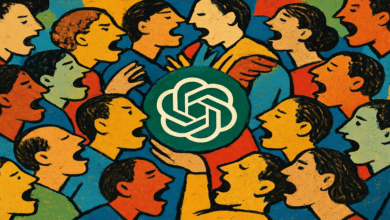ChatGPT Organized a Side-Hustler’s Days – Evenings Opened Up Again

When Work Finally Stopped Eating the Nights
ChatGPT wasn’t supposed to change his life. The side-hustler – by day a junior developer at a small software firm, by night a freelance marketer – was drowning. Cloud tools, Kanban boards, productivity apps, all promised clarity. None worked. His evenings disappeared into chaotic task lists.
When he tested a ChatGPT daily planner prompt, everything flipped. Instead of one more to-do app, he got a working schedule model that protected his nights. For the first time in months, his evenings were his again.
The Pain of Two Jobs Colliding
He wasn’t lazy.
He just had two lives:
- 9-to-6 at the office, fixing bugs in legacy code
- Nights and weekends running campaigns for small business clients
At first, freelancing felt exciting. Then the grind hit. Slack pings at midnight. Emails stacking up. Design requests bleeding into weekends.
Scope creep didn’t just kill projects – it ate his personal time. Dinner with friends? Skipped. Gym? Forgotten. Even sleep got replaced by endless task juggling.
That’s when he asked ChatGPT one direct question:
“Reshape my day so my freelance tasks don’t invade my nights.”
ChatGPT Built Guardrails Into His Calendar
The response wasn’t vague advice. It was a concrete daily schedule.
- 7:30–8:30 a.m.: light freelance tasks (emails, planning)
- 9:00–6:00: developer job, focused work
- 6:30–7:30: gym or walk
- 8:00–10:00: client projects – strict cutoff
- After 10:00: zero work, only recovery
He pasted the plan into Google Calendar. For the first time, there was a visible wall between his jobs. When clients tried to push, he could point to his schedule.
How ChatGPT Kept Him Accountable
The trick wasn’t just the plan. It was the repetition.
Every morning, he ran a quick prompt:
“List today’s tasks in priority order, based on yesterday’s progress.”
ChatGPT adapted his week dynamically. Urgent bug at work? It shifted freelance hours. Client deadline? It pulled tasks earlier.
Within two weeks, he noticed:
- His freelance tasks no longer bled past 10 p.m.
- He answered 90% fewer “late night” emails
- He averaged 2 extra hours of free time daily
The kicker: his freelance revenue stayed the same. Efficiency replaced exhaustion.
Chatronix: Where His Two Worlds Met
The cockpit that stopped context-switching
Running ChatGPT for planning, Claude for email drafts, and Gemini for quick research was still clumsy. Tabs everywhere, context lost.
He moved everything into Top AI workspace for prompt engineering.
Chatronix gave him:
- Six models in one chat: GPT-5, ChatGPT, Claude, Gemini, Grok, Perplexity AI
- 10 free prompts to test before committing
- Turbo mode with One Perfect Answer – merging six outputs into one polished draft
- Prompt stacks to save daily routines and reuse them
- Side-by-side comparisons to pick the cleanest schedule
| Task | Old Way | With Chatronix |
| Daily planning | 4 apps + sticky notes | One ChatGPT stack |
| Client emails | Manual rewrites | Claude polish in 2 min |
| Research | Random Google tabs | Gemini summaries |
| Boundaries | Ignored calendar | AI-enforced cutoffs |
The side-hustler called it his “AI cockpit.” For the first time, he didn’t need five logins to run one workday.
Bonus Prompt That Protected His Evenings
The exact line he still runs inside Chatronix Turbo is this:
“Restructure today’s agenda so freelance work ends before 10 p.m. Add buffers for commute, gym, and rest.”
Turbo mode blended outputs from six models into one realistic schedule – not the fantasy plans he used to make.
Every time he ran it, his calendar respected his evenings.
<blockquote class=”twitter-tweet”><p lang=”en” dir=”ltr”>ChatGPT Prompting Cheat-Sheet (Beginner to Master)<br><br>Bookmark for this later… <a href=”https://t.co/JVDQ32jx8V”>pic.twitter.com/JVDQ32jx8V</a></p>— Zumer (@zumercreator) <a href=”https://twitter.com/zumercreator/status/1946544754252005569?ref_src=twsrc%5Etfw”>July 19, 2025</a></blockquote> <script async src=”https://platform.twitter.com/widgets.js” charset=”utf-8″></script>
What Changed Beyond Work
The measurable gains:
- 12 hours per week reclaimed
- Sleep average up from 5.5 to 7 hours
- Freelance deadlines delivered earlier
- Zero burnout
The unmeasurable? Having dinners again. Watching a movie without guilt. Remembering what it felt like to log off.
Why This Story Matters
This isn’t just about one side-hustler.
Anyone juggling multiple roles – freelancers, students, even managers – knows how days leak into nights.
ChatGPT provided the guardrails. Chatronix turned them into a sustainable system. Together, they proved something simple: time isn’t found, it’s structured.
And when structure comes from prompts, evenings stop disappearing.
Final Thought
He didn’t quit his freelance clients. He didn’t drop his developer job. He just stopped letting work eat his nights.
ChatGPT and Chatronix didn’t hand him free time. They organized it. And once evenings reopened, he remembered – life isn’t just work.
Because sometimes the biggest win isn’t earning more. It’s finally closing the laptop at 10.




